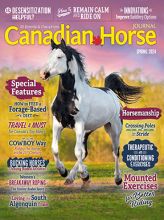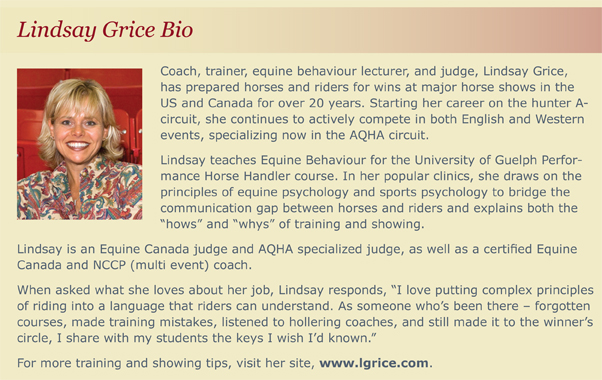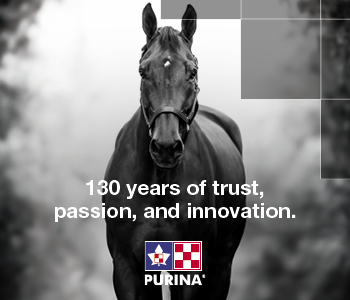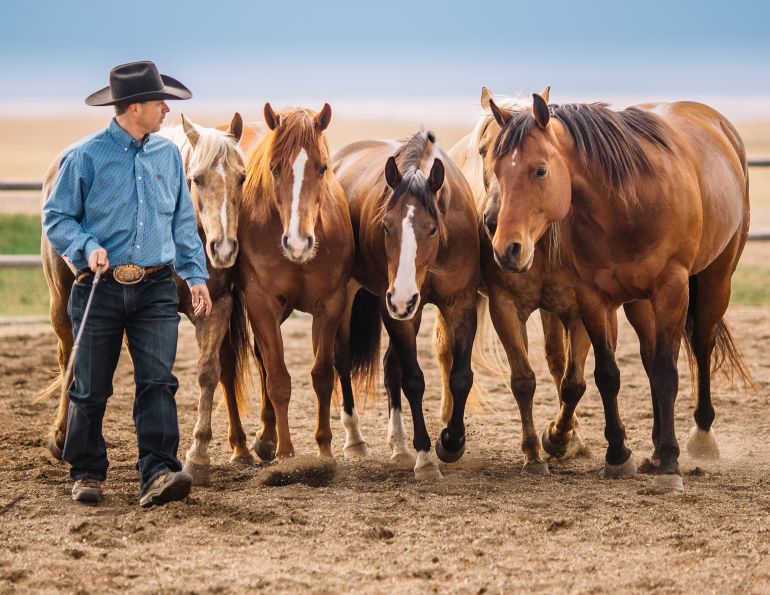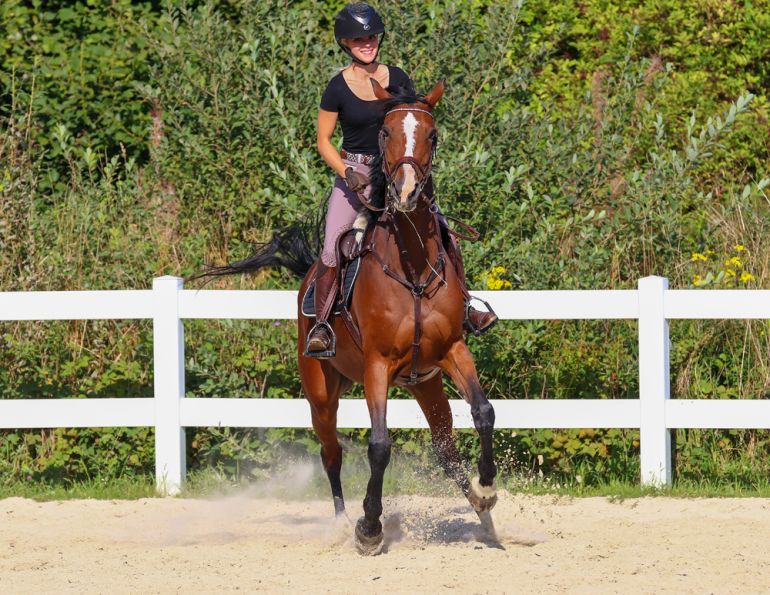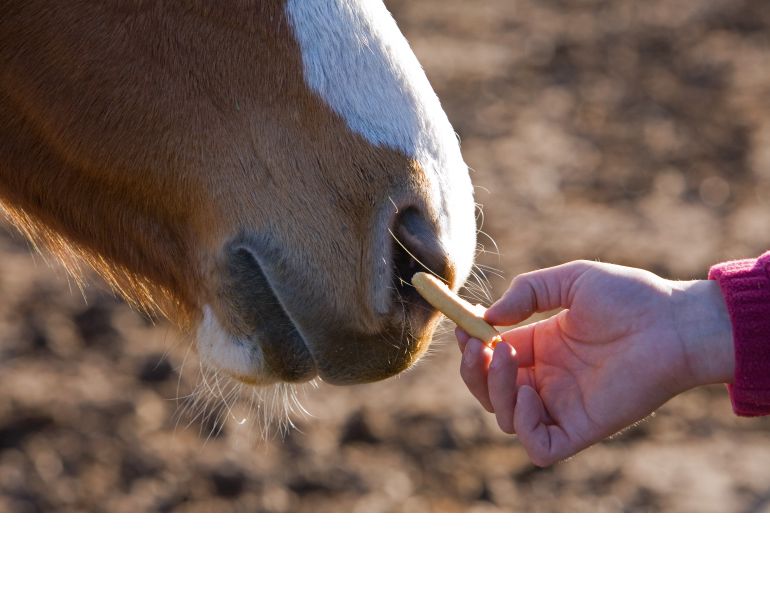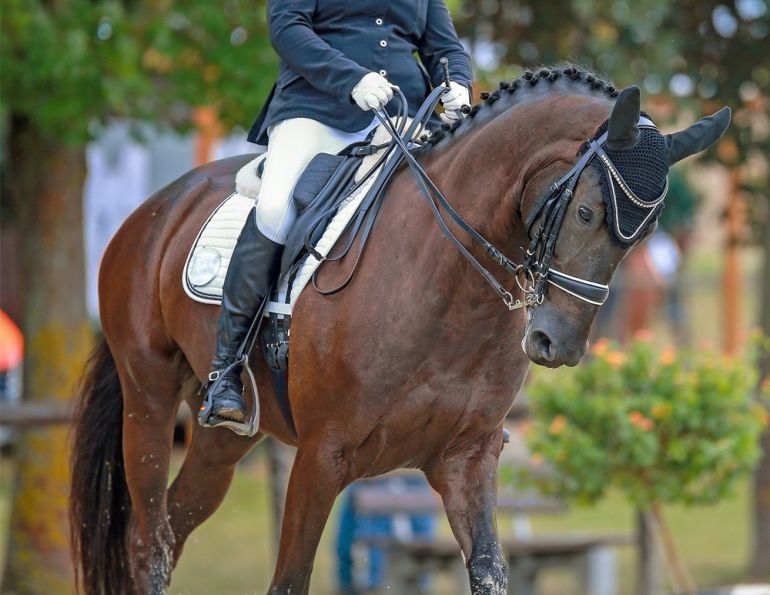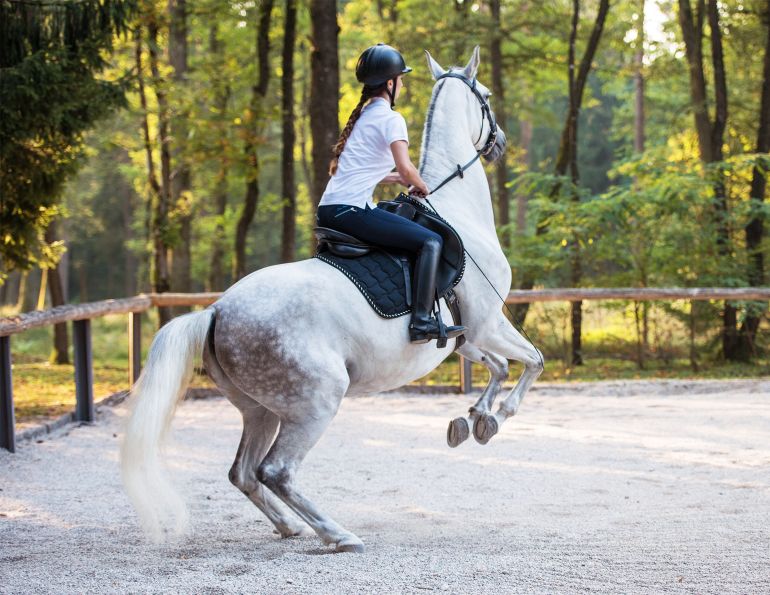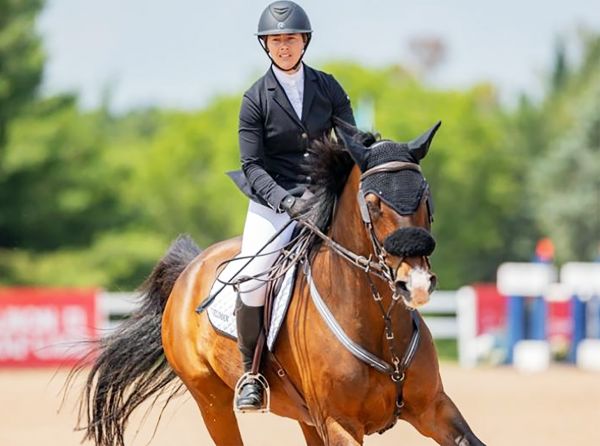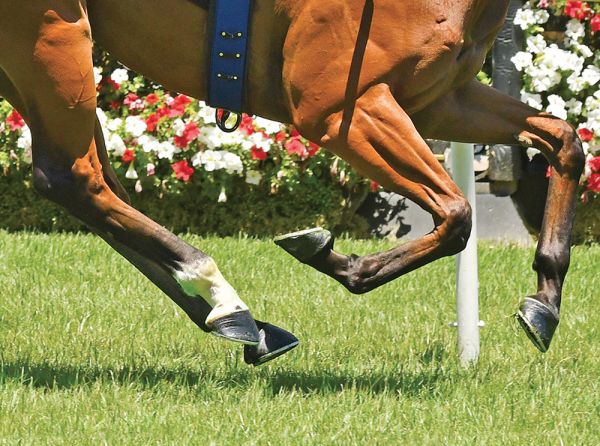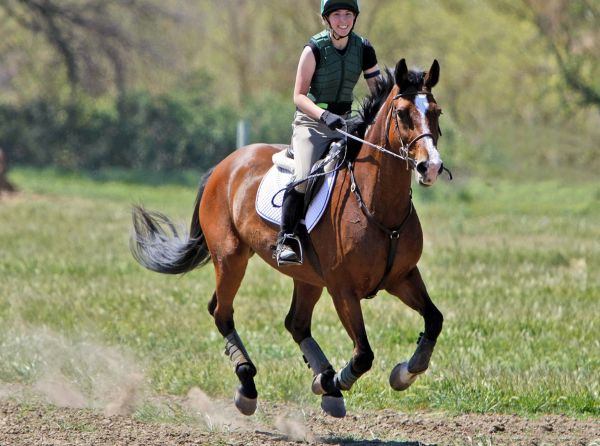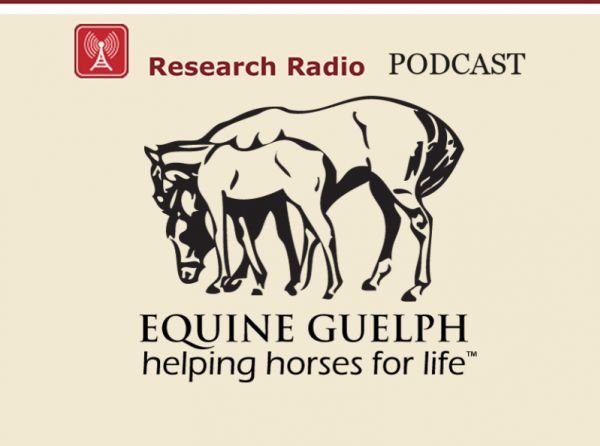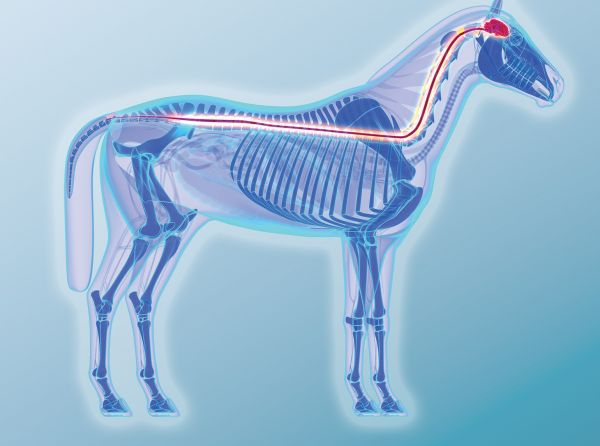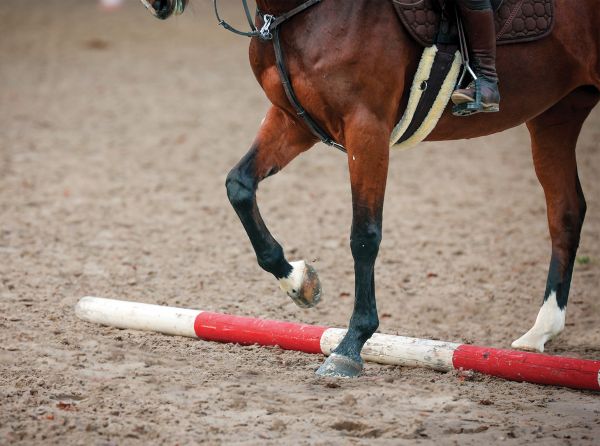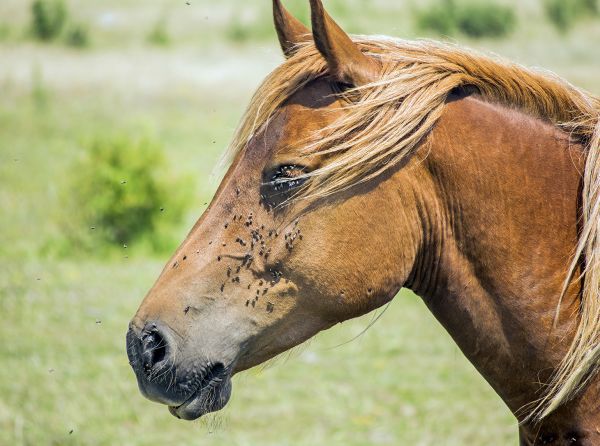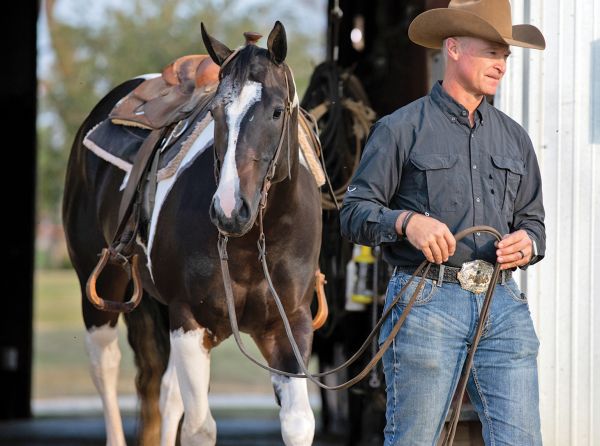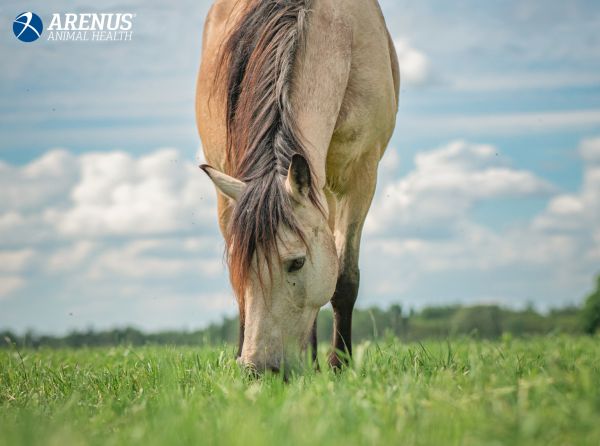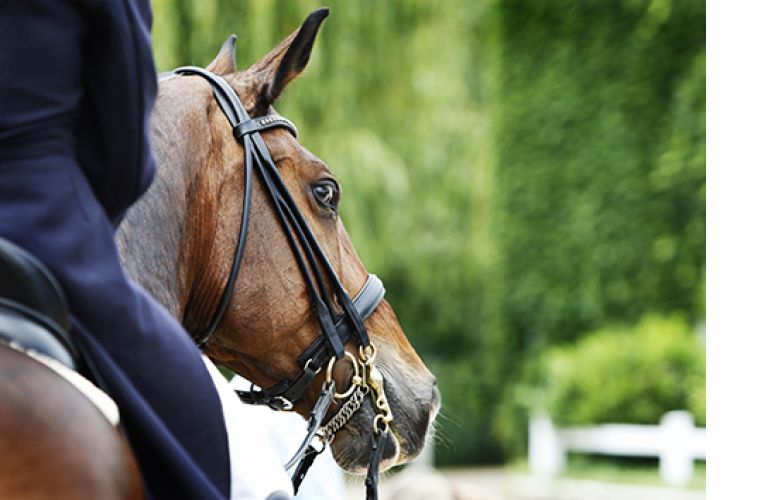By Lindsay Grice
Question - I am looking at buying a horse to compete at a novice level. He is exactly what I am looking for except that he cribs. My friends advise me to steer clear of him. Would you ever consider buying a horse that is a cribber?
Answer - Always keep in mind that you will never find the perfect horse, but, as I’ve reminded people in past columns, be unwavering in your top priorities, whether they are temperament, talent, tolerance, or training. Often I advise my clients to settle for a horse that isn’t the ideal age, or perhaps the best mover, or has some minor soundness issues if he excels in several other higher priority categories. I have worked with some very suitable horses in my career that were, unfortunately, also cribbers.
Cribbing is a stereotypy, similar to obsessive compulsive behaviour in humans. A stereotypy is a repetitive behaviour that serves no practical purpose but makes your horse feel better by releasing brain chemicals. Research shows that, while initially begun in response to stress (physiological or environmental), cribbing often continues as an everyday habit, even without the stressful trigger.

A cribbing collar will greatly minimize the frequency of the cribbing, but the behaviour is not likely to disappear entirely.
When a horse cribs, he grasps a fixed object with his incisor teeth and sucks in air with a grunt. There are many anecdotal stories about this vice – that it causes impaired digestion, colic, flatulence, worn teeth, and can be a learned behaviour, etc. I’ll put in my two cents worth - in my personal experience, I have not seen any horses with this habit having these problems, nor have I seen one horse picking up the vice by watching another. Despite the belief of many horse owners to the contrary, researchers and behaviour experts almost unanimously conclude that cribbing is not a learned disorder, however, studies on cribbing are ongoing.
Although cribbing can be minimized by using a cribbing collar and other methods, it is not a habit you are likely to break. Research shows that if a horse is genetically inclined toward cribbing, it’ll most likely rear its ugly head at weaning time. The introduction of grain concentrates, less frequent nursing and grazing, and emotional stress create a recipe for gastric ulcers. Cribbing appears to relieve the discomfort. The unfortunate part is that, while studies show that an antacid diet often relieves the discomfort caused by gastric ulcers, it doesn’t stop the cribbing frequency once it’s started. No study I’ve come across links ulcers to the development of cribbing in mature horses, but common sense indicates that it is easier to prevent the problem with good management than try to stop it once it is a confirmed habit.

Cribbing occurs when the horse grasps a fixed surface, such as a fence rail or stall door, and sucks in air, making a grunting sound as he does so. Photo: Pam MacKenzie Photography
I side with the growing view that it is more humane to permit this stress relieving behaviour rather than try to physically inhibit it with a cribbing collar. Rather, try to minimize the frequency of cribbing by managing the horse’s environment in the most natural way possible and avoid the stress triggers that spark the behaviour.
There is evidence that cribbing is seen more often in horses fed a high simple carbohydrate diet (one high in sugars found in grain rather than the carbohydrates found in hay). We tend to keep our show horses in an unnatural environment, limiting access to free grazing and exercise, while feeding grain concentrates, which may provoke other behaviours of this kind. Increased forage and roaming can help. Cribbing seems to be triggered by boredom and confinement; no record of cribbing has been documented as occurring in wild horses, so another thing you can do is allow him have plenty of social interaction by turning him out regularly in a group.
Of course, there are many horses that are kept in a stabled environment and never crib, so there is likely a genetic factor which predisposes an individual to this behaviour.
To summarize, I would consider buying a horse that cribs, understanding that when I go to sell him, this behaviour may deter a segment of buyers. More than likely, the fact that he cribs isn’t going to sway the judge or get in the way of my riding enjoyment.
This article originally appeared in the January 2012 issue of Canadian Horse Journal.
Main article photo: iStock/Steverts


